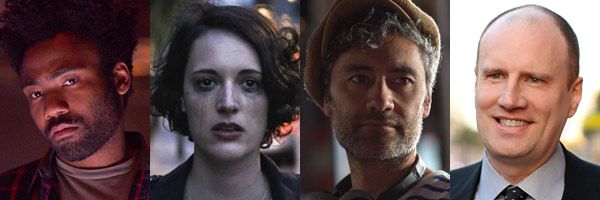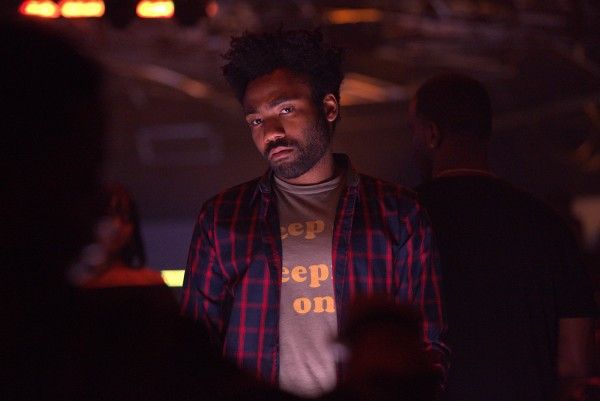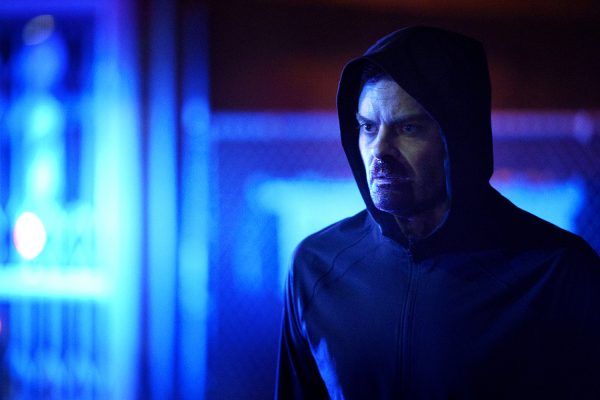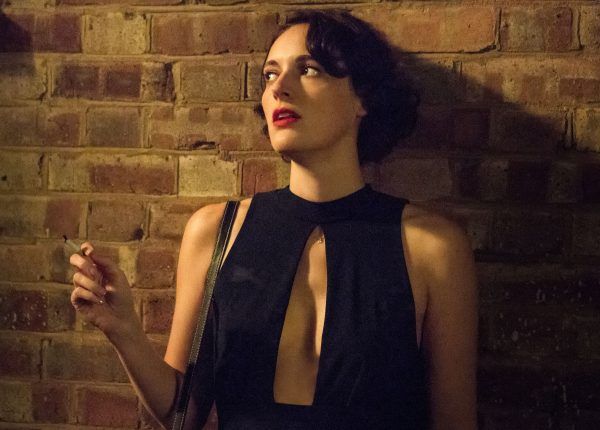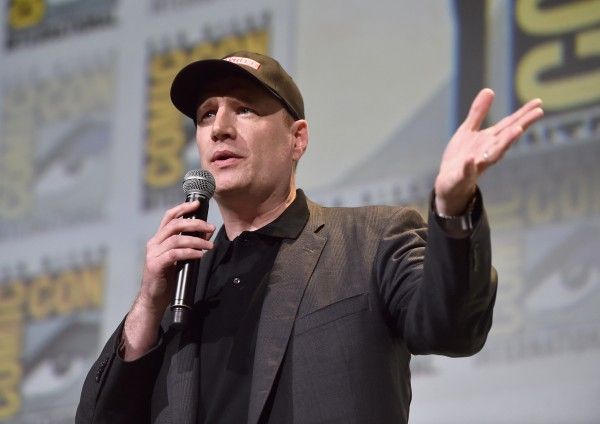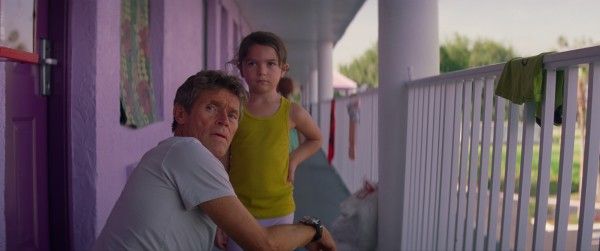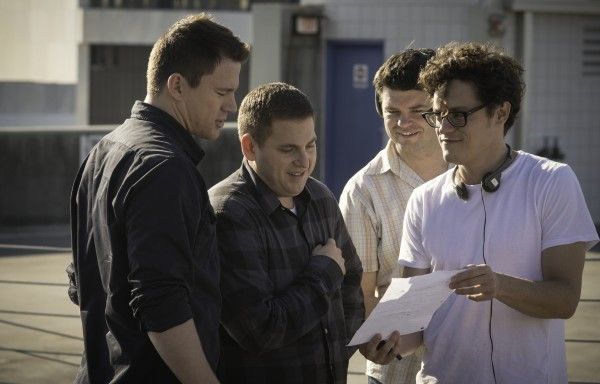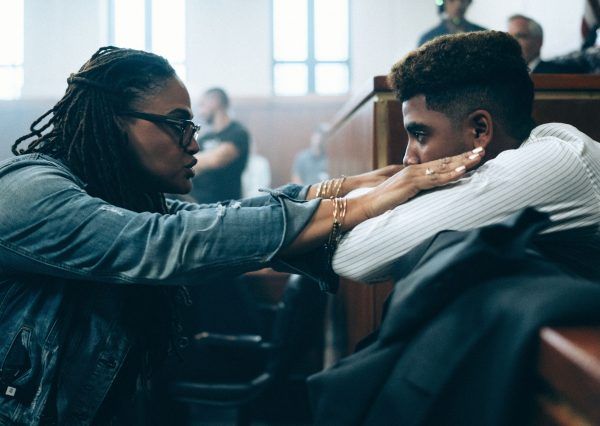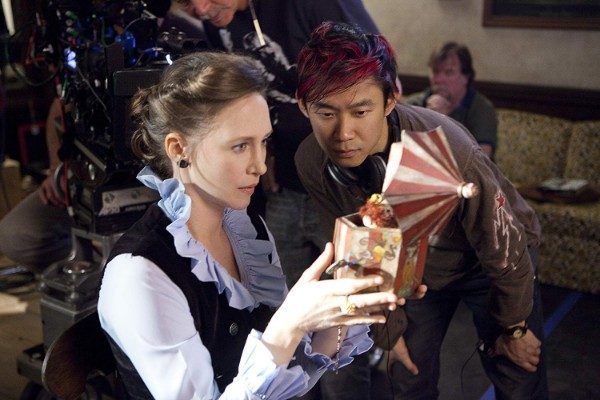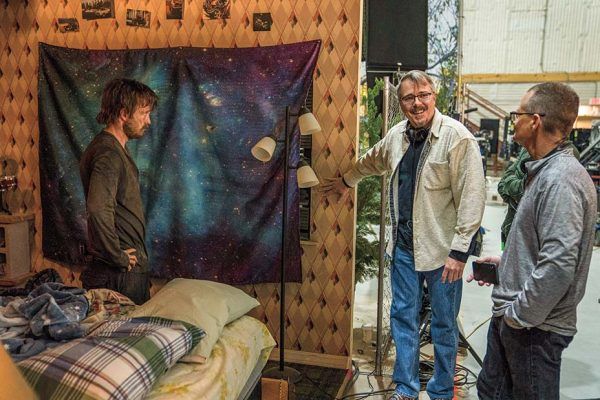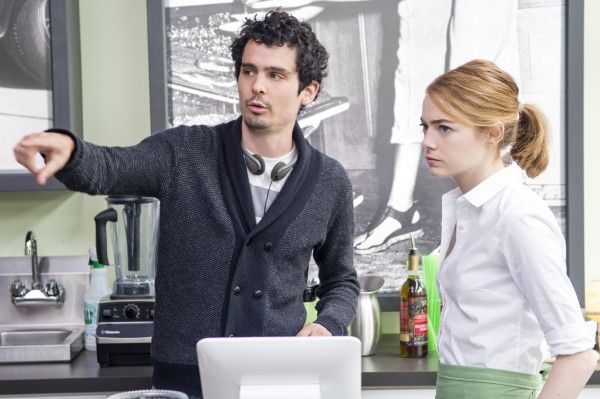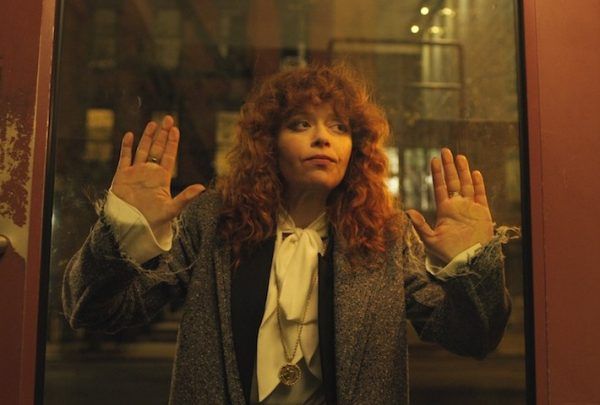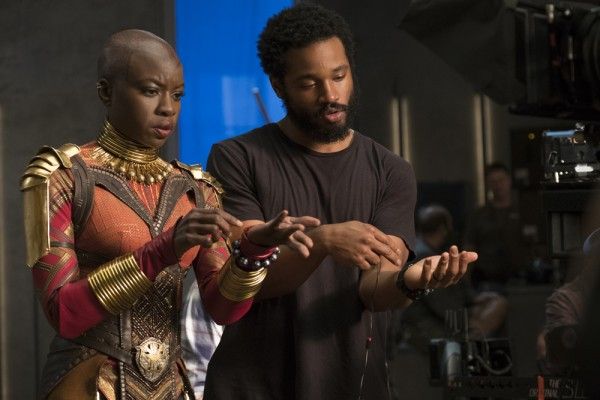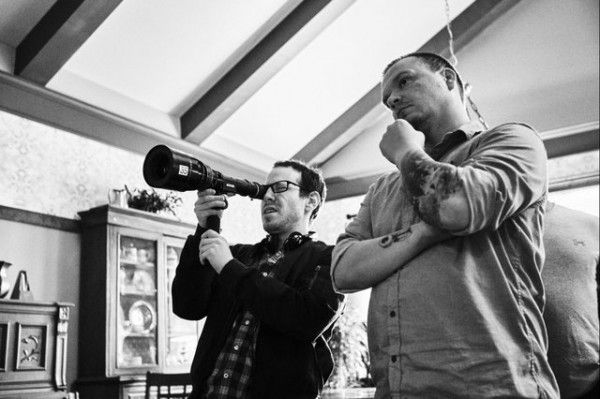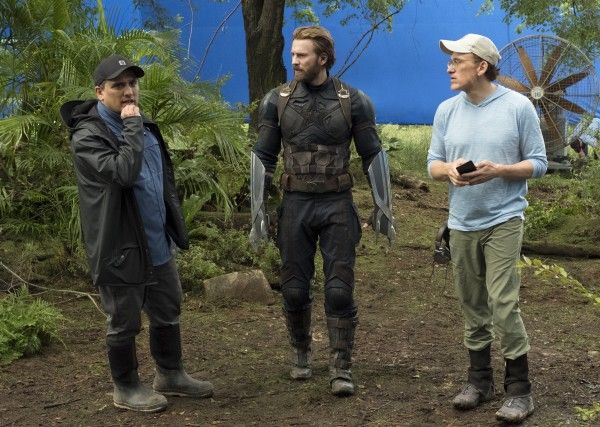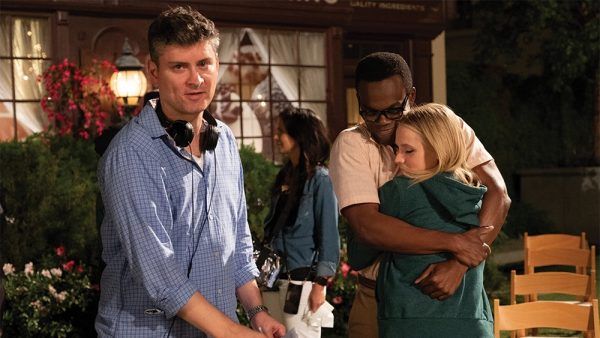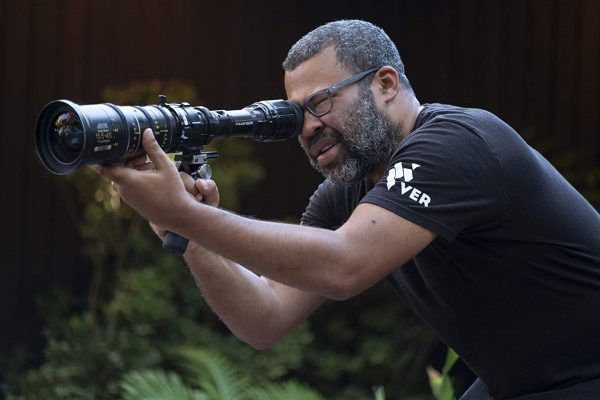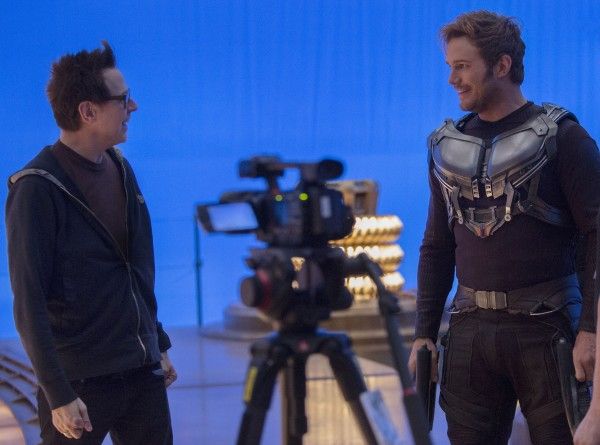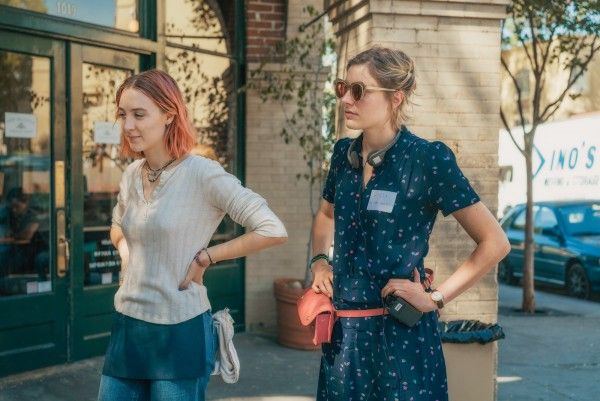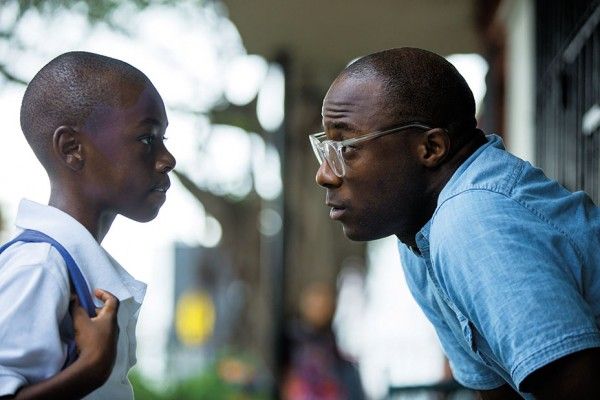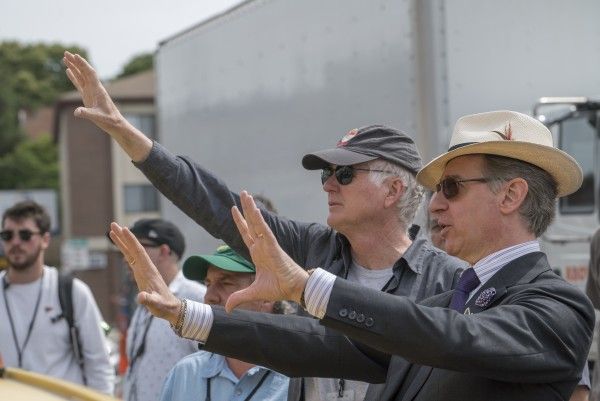In crafting our Best of the Decade content here on Collider, we ran through the usual suspects—the best movies, the best TV shows, the best action scenes. The industry changed radically over the last 10 years as superhero movies took over the box office, the idea of a “movie star” began to fade, and the advent of streaming opened up the floodgates for more television than you could possibly watch in several lifetimes.
With this influx of content, it became clear that the vitality of the entertainment industry hinged on storytellers with the capability of telling new or unique stories, or the ability to craft new ways of telling familiar stories. At the end of the day, a great film or TV show is, at its core, a story. And what’s a story without a storyteller?
So in addition to the usual lists you may see elsewhere, we took the opportunity to highlight what we perceive to be the breakout storytellers of the decade. These are writers, directors, producers, and performers who broke new ground, and in their wake paved the way for a more diverse range of stories to be told. From superheroes to teenagers, drug kingpins to hitmen, a protagonist is only as good as the writer behind him or her, and these storytellers are responsible for some of the most iconic characters to grace the screen (big and small) over the last 10 years. So without further ado, we present the breakout storytellers of the 2010s.
For more of Collider's Best of the Decade content, click here.
Donald Glover
Donald Glover is gifted at so many things, it’s almost intolerable. The polymath performer got his start in comedy when Tina Fey hired him as a writer on 30 Rock out of college and soon after, a starring role on Dan Harmon’s critical darling Community made him a household name. But the turn of the decade brought out new sides of Glover’s talents and with each new medium,he found different ways to unleash his one-of-a-kind voice and perspective.
2010 and 2011 brought stand-up comedy specials that showed off his gift for showmanship, live performance and timing while glimpsing the dark absurdist undercurrent to his sense of humor. 2010 also saw the release of three mixtapes under his stage name Childish Gambino and the release of his first studio album the following year. From there, it was a quick road the Grammys, numerous followup albums, and a series of surreal music videos that announced the powerful potential of his enduring creative partnership with director Hiro Murai (who went on to direct Glover’s zeitgeisty music video sensation “This Is America”.”
But somehow, even with all those accomplishments and talents, no one was prepared for the nuclear-grade absurdist genius of his FX series Atlanta, which he creates, writes, executive produces, stars in and occasionally directs. A hallucinatory and provocative meditation on black life in America, Atlanta never pulls a single punch, landing one insightful blow after the next. Atlanta is an inspired show with a fearless commitment to gags that are equal parts batshit and brilliant and finding the most direct access to universal truths in Glover’s surreal world of magical realism. Nobody but Donald Glover could have given us Teddy Perkins, and nobody but Teddy Perkins could so concisely sum up the enigmatic terror and surreality of life in 2018. — Haleigh Foutch
Bill Hader
One of the most defining images of my 2019 is walking out of a movie theater in Hollywood to see a billboard for Barry on one side of Sunset, a billboard for IT: Chapter Two on the other, and thinking of how absurdly far Bill Hader has come. The dude started the decade as the most endearing part of every Saturday Night Live sketch he appeared in—Stefon alone belongs in SNL’s Hall of Fame class—but soon got the chance to really stretch his creative muscles, first with the genius Documentary Now! on IFC and then Barry, the multi-Emmy winning dark comedy that’s emerged in just two seasons as one of the best shows in years. Sure, Hader will still show up to flatline in something like Popstar: Never Stop Never Stopping, because Bill Hader is still funny as hell, but that’s also why he was able to so deftly channel but comedy and tragedy in IT: Chapter Two. The man contains multitudes, and this decade saw him tap in to every single one. (Note: If you’re still on the fence, please watch this scene from the The Skeleton Twins several dozen times and thank me later.) – Vinnie Mancuso
Phoebe Waller-Bridge
In the midst of endless, tiresome discourse and debate about political correctness, woke culture, and how it’s all killing comedy, Phoebe Waller-Bridge and her incisive voice emerged like a beacon of warm, welcome and “holy shit, hit pause because I’m laughing so hard I can’t breathe” relief. They say good comedy always punches up, but Waller-Bridge takes another track entirely -- she finds her best material by punching inward. A gifted and trained actress with enough screen charisma to earn a storied career on the basis of her acting talent alone, Waller-Bridge is also endowed with a once-in-a-generation wit that makes a peer among wordsmith legends like Oscar Wilde and Dorothy Parker, not to mention a seemingly preternatural gift for tight storytelling with transformative character arcs. And she just makes it all look so damned easy.
As an actress, she earned some recognition in the early 2010s through a number of roles, most notably on 2015’s Broadchurch, but it wasn’t until her screenwriting career took off that her astronomical rise truly began. In 2016, she delivered a double whammy with both the woefully underseen Channel 4 series Crashing and the BBC/Amazon hit Fleabag (based on her hit 2013 one-woman stage show), both of which applied her dangerously sharp scalpel/pen to flaying open the heartache and humor of messy, deeply fucked up people and humanity’s endless capacity for the punishments of love. Fleabag earned instant buzz for its torturously raw, impossibly funny look at grief and self-destruction, becoming the kind of lowkey critical darling you probably heard you “absolutely have to watch” from the biggest TV nerd you know.
Then came 2018, and another one-two knockout from Waller-Bridge. She starred in a profile-boosting gig in Solo: A Star Wars Story as Lando Calrissian’s scene-stealing, outrageously thirsty droid L3-37. Reviews of the film were mixed across the board, but one thing everyone agreed on was Phoebe Waller-Bridge was the unequivocal highlight. At the same time, her Emmy and Golden Globe-winning BBC thriller series Killing Eve became a wildfire sensation, dominating Twitter discourse and watercooler conversation with the captivating, queer, and utterly unconventional love story about the shared obsession between an assassin (Jodi Comer, exquisite) and the agent trying to bring her down (Sandra Oh, sublime).
2019 brought us the gift that is Fleabag Season 2, an actual masterpiece that packs a titanic span of the emotional spectrum into less than three hours. Fleabag Season 2 is, no bullshit, god-level writing. A break-the-bat, soaring out of the park home run that sent writers everywhere into an existential spiral knowing they’ll never do anything half as good. In six short episodes, Waller-Bridge delivers a sum total of the human heart with blistering candor and insight, yanking you from deep-belly laughter to wrenching, cathartic sobs with a twinkling, naughty grin and depth of compassion that’s legitimately profound. It tore through the zeitgeist with the force of the phenomenal. Hot Priest became an icon, and so did Phoebe Waller-Bridge, tapping into the purest, most protected parts of our capacity for goodness and reminding us that, if we can love Fleabag with all her hideous faults, maybe we can love ourselves too.
No one writes characters like Phoebe Waller-Bridge, nor dialogue, nor structure -- the fourth-wall break has never met a more worthy match -- because she is a truly singular voice and gifted storyteller, unparalleled by her peers. With a co-writing credit on 2020’s No Time to Die, giving her the opportunity to put that unique stamp on the complicated legacy of James Bond, Waller-Bridge is poised to remain a vital storyteller in the decade to come, and it’s hard to remember the last time it was this exciting to wonder what someone will do next. — Haleigh Foutch
Kevin Feige
The most significant name on this list, in terms of impact throughout the decade, is probably Kevin Feige. The producer started the 2010s as the head of Marvel Studios, steering creatively tricky waters with Iron Man 2 and trying to build to The Avengers. He ends the decade as Marvel’s chief creative officer (overseeing pretty much every creative aspect of Marvel Entertainment), producer of the highest-grossing film in history, producer of the first superhero movie nominated for Best Picture, producer of an upcoming Star Wars movie, and a key figure in an unprecedented deal between two studios to share a popular character between them for the betterment of the creative vision.
Feige is the “showrunner” of the Marvel Cinematic Universe—the most consistently successful franchise running right now—and the head of the braintrust that oversees each and every step in building the overall MCU story. The Avengers doesn’t happen without Feige. Hiring James Gunn to direct Guardians of the Galaxy probably doesn’t happen without Feige. Black Panther and Captain Marvel definitely don’t happen without Feige’s insistence—to the point that he successfully lobbied to change his direct-report at the studio to get those films made. The guy cares deeply about these characters, about this story, and yes, about movies. He is the central figure for one of the most unprecedented and impressive runs in cinematic history, and he’s showing no signs of slowing down or breaking his streak anytime soon. – Adam Chitwood
Sean Baker
You can’t talk about independent film in the 2010s without also talking about Sean Baker. The filmmaker’s 2015 comedy Tangerine was his breakout hit, but even then it’s a very low-budget movie about trans sex workers with zero recognizable stars, all shot entirely with an iPhone. That’s an independent film, and yet Tangerine had tremendous crossover appeal, proving that no matter how “non-commercial” a studio may deem certain subject matter or tone or style, sometimes (all times?) traditional wisdom is worth fuck-all. Baker’s next film, The Florida Project, brought more recognizable stars to the forefront but didn’t leave behind its indie spirit, and this deeply felt story of growing up in poverty—told from the POV of a young girl—is at once full of possibility and despair. It’s one of the most emotionally devastating films of the 2010s, thanks in no small part to Baker’s commitment to capturing the story’s events in as genuine a manner as possible. – Adam Chitwood
Phil Lord & Chris Miller
The comedy of Phil Lord & Chris Miller is absolutely on my wavelength, but it’s their storytelling acumen that sets them apart from their peers. Lord & Miller have made their mark taking ideas that should not work at all, and then surprising everyone with the results. They did it back in 2009 with their adaptation of the children’s book Cloudy with a Chance of Meatballs and then showed that doing the impossible was just their thing with a brilliant adaptation of 21 Jump Street and turning a toy line into a referendum on chosen one narratives with The LEGO Movie. That’s not to mention their contributions to other great movies like The LEGO Batman Movie and Spider-Man: Into the Spider-Verse. – Matt Goldberg
Ava DuVernay
Since Ava DuVernay became the first black woman to win Sundance’s Directing Award for her second feature, Middle of Nowhere, Ava Duvernay has emerged as an absolutely essential voice in both filmmaking and social justice, with both avenues often intertwining. DuVernay tells stories to shock your system, whether it be the Martin Luther King Jr. biopic Selma, prison system documentary 13th, or, recently, the searing Central Park Five series When They See Us. Considering all that, it almost seems unfair that she can also just craft one hell of a blockbuster; with her A Wrinkle in Time adaptation, DuVernay became the first black female director to snag more than $100 million at the box office and is currently hard at work putting New Gods together for Warner Bros.’ DC Universe. – Vinnie Mancuso
James Wan
Few filmmakers have had as marked and measurable an impact on horror cinema as James Wan has in the last 10 years. The director and producer who just can’t seem to lose at the box office lately helped kick off the “torture porn” trend in the early 2000s with Saw, but in the 2010s, his reach was wider, more impactful, and resonant across genre boundaries.
Wan kicked off his decade with 2010’s Insidious, launching a top-grossing horror franchise that’s still booming to this day, and along with 2013’s Insidious: Chapter 2, cementing himself as a formative figure in the industry-altering success of Blumhouse’s low-low-budget strategy. 2013 also saw the release of New Line Cinema’s The Conjuring, allowing Wan the opportunity to dig even deeper into the classicism of haunted house horror and swing to the other end of horror budgets. The film was a massive success, earning $319 million worldwide, and spawning a billion-dollar franchise of sequels and spinoffs that seems to get more popular by the year.
That’s also about the same time started leaning into producing, launching his Atomic Monster banner in 2014 with the first Conjuring spinoff Annabelle, and soon after, the short-to-feature success Lights Out. That film was directed by David F. Sandberg, who, like Wan, made the leap from New Line’s horror arm to Warner Bros. DC Universe.
So that’s record-shattering success in horror, two franchises launched within 3 years, and a killer eye for fostering up-and-coming talent. What’s next? Bonafide blockbuster filmmaking. In 2015, Wan directed Furious 7, threading an impossibly difficult needle after the tragic death of Paul Walker and working pure movie magic to give fans catharsis and closure without losing the gonzo action adrenaline rush that’s made the franchise an international sensation. And he worked his box office wizardry once again with 2018’s Aquaman, delivering one of the highest-grossing DC films to date, once again pulling an unusually heavy weight by bearing the burden of the post-Justice League movie that helped chart a new course for the troubled cinematic universe.
Across genres and studios, Wan has reliably delivered a breakout hit every few years over the course of the decade, each helping to redefine the template and tropes of the stories he’s telling, each success bigger than the last. Few filmmakers can claim to have his success rate, and even fewer can claim such a wide-ranging reach of creative influence in the 2010s. — Haleigh Foutch
Vince Gilligan
Okay so if Breaking Bad is one of the best TV shows of the decade, it stands to reason that its creator/showrunner/mastermind Vince Gilligan is at least marginally talented. The X-Files alum pitched Breaking Bad as a show that would take the lead character “from Mr. Chips to Scarface,” which is an arc that could be executed any number of ways. Gilligan and his insanely talented team of writers and filmmakers wrote themselves into corners time and again, slowly tracking the evolution of Walter White from sad middle-aged man to drug kingpin. As if that wasn’t enough, Gilligan then went and did something dumb: created a Breaking Bad spinoff series called Better Call Saul. And wouldn’t you know it? That show is brilliant as well. You don’t create and run a show as consistently great as Breaking Bad by accident, and that was no one-off. The mature, elegantly heartbreaking Better Call Saul solidifies Gilligan as one of the best storytellers of the decade. – Adam Chitwood
Damien Chazelle
Here’s something insane: Damien Chazelle was 32 years old when he won the Best Director Oscar for La La Land. Here’s another thing that’s insane: Chazelle is now 36 and has already made three great movies. The wunderkind first broke out with 2014’s Whiplash, a terrifying and intimate tale of ambition, before crafting a wildly ambitious musical with the downright lovely La La Land. Then, just to shake things up, he directed an incredibly visceral astronaut drama about Neil Armstrong in which he had to recreate the moon landing. First Man feels like one of those films that will gain a more significant audience as time wears on, but across these three movies Chazelle has never made the same film twice. That mix of ambition and talent is rare, and while many could hang their hat on that trifecta of films right there, Chazelle is showing no signs of slowing down. – Adam Chitwood
Natasha Lyonne
Absolutely do call it a comeback. After a prolonged downswing on both a personal and professional front, Natasha Lyonne roared back into the public eye as Nicky Nichols, an essential heart-and-soul of Netflix’s Orange is the New Black. That show, you might remember, was largely responsible for positioning the streamer as a powerful force in the original series game. Not content with just helping out, Lyonne then went on to co-create (with Leslye Headland, and Amy Poehler), by a wide margin, one of the best original series to ever hit Netflix: Russian Doll. Lyonne starred in, co-wrote, and directed the finale of the trippy sci-fi dramedy that follows a woman named Lydia stuck in an endless cycle of death and reawakening on her birthday. The premise shouldn’t be surprising, honestly, as Lyonne has spent the last decade loudly pronouncing “I’m back.” – Vinnie Mancuso
Ryan Coogler
Ryan Coogler broke out big at the 2013 Sundance Film Festival with his drama Fruitvale (later retitled Fruitvale Station), an incisive look at the day leading up to the death of Oscar Grant at the hands of police officers. Coogler could have probably jumped straight to a blockbuster from this, but he wisely chose a mid-budget film that would reboot the Rocky franchise from the perspective of Apollo Creed’s son, Adonis. That led to the riveting Creed, the best Rocky movie since the original Rocky. Then Coogler made his biggest move yet by signing on to direct Black Panther and giving Marvel movies a depth and nuance they hadn’t yet seen as the film explore the collision between African ancestry and the reality of life for African Americans. Coogler has shown a profound and thoughtful examination of race and legacy through his three features, and I can’t wait to see what he does in the decades ahead. – Matt Goldberg
Ari Aster
With only two films under his belt, Ari Aster is already a certified master of horror and technically-accomplished filmmaker that’ll make Martin Scorses evangelize about your film. And Aster did it so fast. Not that he didn’t put in the work, there were those years of acclaimed shorts, but Aster’s feature debut just arrived in theaters in 2018. His followup arrived some 12 months later in 2019; both films ambitious and gruelling, with a perfectionist eye for technical detail and impeccable production value.
In 2018, Hereditary was one of those festival hit films that had such a tangible, passionately vocal buzz, you almost had to write the furor off as hyperbolic. Turns out it wasn’t. Led by a transcendent, primal performance from Toni Collette, Hereditary was about the bleakest exploration of grief, guilt, family dysfunction, and mental illness this side of a greek tragedy. And it’s terrifying. Aster grounds his occult menace in the all too real and relatable horrors of tragic loss and crushing guilt, putting the family drama before the scares and then linking the two with cruel precision; swathing the audience in an unyielding, encroaching sense of dread, methodically snuffing out the last lights of hope in the build-up to the punishing, paralyzing grande finale.
A year later, Aster did it again with Midsommar, a dark breakup fairytale that once again roots its horrors in the grief of unfathomable loss. But Aster also chose to flex his filmmaking skills with his sophomore feature, pivoting away from the stylistic and tonal trademarks that made Hereditary such a brutal watch. Midsommar is sun-drenched and transparently plotted, leaving the dread of unknown menace behind for the dread of certainty. We know exactly what’s about to happen -- the film literally writes the plot on the walls in most scenes thanks to the staggering set design by Henrik Svensson -- and Aster brings a giddy streak of dark comedy to his embrace of cult horror tropes. Filled with aggressively ambitious wide shots spread across multiple points of action, Midsommar is also a visual feast and stunning counterpoint presentation of Aster’s command of visual storytelling and cinematic devices when compared with the dark, dreary trapped-in-a-dollhouse interior work in Hereditary.
With just two feature films under his belt, Aster has firmly established himself as a foremost voice in genre storytelling with a foundation of technical talent and vision to take him through any genre he sets his sights on next. Whether he’s dragging a domestic drama to hell or unleashing a sun-drenched phantasmagorical breakup fantasy, Aster does it with artfully articulated visual storytelling and an obvious gift for directing actors (Florence Pugh’s performance in Midsommar is right on par with Collette’s as an instant all-timer) and a focus on character-first storytelling that pours perfectly into any genre mold. — Haleigh Foutch
The Russo Brothers
Previous filmmakers who earned the title of “director of the highest-grossing film of all time” include such icons as Steven Spielberg, James Cameron, and George Lucas. And yet it’s a reflection of how significantly the industry has changed that brothers Joe and Anthony Russo—who first broke out with an indie film before really making a name for themselves in television—now hold that title. The directors behind the Marvel films Captain America: The Winter Soldier, Captain America: Civil War, Avengers: Infinity War, and Avengers: Endgame honed their ability to nail serialized storytelling on shows like Arrested Development and Community, not making other iconic films before their leap to franchise filmmaking. But their outstanding work on the small screen honed their ability to tell dynamic stories that fit into a larger, serialized whole.
It takes serious talent to be able to make two films like Infinity War and Endgame back to back without falling over dead. It takes superhuman talent to make films like that that are actually good. That they stuck the landing on Endgame is a downright miracle, and while it’ll be interesting to see where their career goes from here, the Russo Brothers certainly made a significant mark on pop culture in the 2010s. – Adam Chitwood
Michael Schur
Writer and producer Michael Schur’s career in television began in the 2000s, where he made a name for himself on SNL before being brought onto the early days of the U.S. The Office by Greg Daniels. But it was the 2010s during which the “Mike Schur brand,” for lack of a better word, became a treasured commodity. Schur and Daniels co-created the NBC sitcom Parks and Recreation in 2009 but Schur spearheaded the series as showrunner throughout its run, crafting one of the funniest, most sincere, and most satisfying sitcoms of the decade. During Parks and Rec’s run Schur helped co-created another delightfully funny and earnest sitcom in Brooklyn Nine-Nine, but that show was then run by Dan Goor. For his next opus after Parks and Rec, Schur gifted us The Good Place. Now to create one of the best shows of the decade is a feat unto itself, but to create two is something else. The Good Place is wildly different from Schur’s other TV work, and yet maintains his knack for compassion and faith in humanity. It’s a network sitcom about moral philosophy, and it’s hilarious and surprising and sweet, bridging the gap between streaming and broadcast content with intensely serialized storytelling and huge plot twists, but also episodes that are satisfying week-to-week. Mike Schur is a magician, and his go-to trick is reminding us that sometimes humanity is still worth fighting for. – Adam Chitwood
Jordan Peele
How often do you get to watch a creator not only confidently come into his own as a filmmaker and take over a genre, but completely flip that genre on its own head in the process? In just two short years, Jordan Peele broke out of “just” being a sketch comedy genius and decided to become the modern-day master of horror, part Hitchcock, part Craven, and 100% something we’ve never seen before. His horror feature debut, Get Out, confidently strode the lines between social satire, racial commentary, locked-house horror-thriller, and black comedy all at once. It nabbed Peele an Outstanding Original Screenplay Oscar, made a star out of Daniel Kaluuya, and led straight to 2019’s doppelganger mindfuck, Us. Peele’s sophomore horrorshow didn’t quite reach Get Out’s technical level—and, honestly, what an unfair bar to set for yourself—it did make another point. Us opened to a record-breaking $70.3 million on its way to a $255 million worldwide box office, proving Peele’s name attached to a film hints at a horror franchise all its own. – Vinnie Mancuso
James Gunn
No one probably would have predicted that James Gunn, who got his start with gory Troma flicks and made irreverence and violence part of his brand with movies like Slither and Super would be one of the guiding forces of the MCU, but here we are. Gunn knew how to dial back his more R-rated sensibilities while proving that a director could have a vision and a voice in the Marvel machine. The fan uproar when Gunn was fired over bad tweets came not just because those pushing those tweets were doing it in bad faith, but also because they could see from his actions and his art that he was no longer the same guy. It speaks to Gunn’s character and his importance to Marvel that Disney invited him back for Guardians of the Galaxy 3, and with The Suicide Squad on the horizon, Gunn’s contribution to the superhero genre will be undeniable. – Matt Goldberg
Greta Gerwig
It was not immediately clear at the beginning of this decade that Greta Gerwig would turn out to be one of the most exciting and essential storytellers of our time. Her acting roles in Greenberg and Arthur were solid, to be sure, but it wasn’t until 2012’s Frances Ha that the world collectively fell in love with her. Not just because of her soulful performance, but because of the smart, sly screenply she co-wrote with Noah Baumbach. She would subsequently co-write and star in Baumbach’s 2015 feature Mistress America, a charming throwback screwball comedy, but when she got in the director’s chair on 2017’s Lady Bird, she blew us all away. Coming-of-age stories are a dime a dozen, but Lady Bird felt at once wholly unique and incredibly familiar—in the best way. It’s surely one of the best films about growing up ever made, as the urgency and playfulness of Gerwig’s screenplay creates a platform for the film’s tremendous ensemble cast to inhabit and make their own. She closes out the decade with her radical take on Little Women, only her second feature as a director. But with a talent like Gerwig’s, two films in, she’s solidified her place as one of our essential storytellers. – Adam Chitwood
Barry Jenkins
The kerfuffle over the envelope and false La La Land win significantly overshadowed just how big it was that Moonlight won Best Picture, and it would not have been possible without co-writer/director Barry Jenkins. This is an independent film about a young African-American coming to terms with his life, his childhood, and his sexual identity, told through an overwhelmingly visceral lens courtesy of Jenkins’ masterful direction. Moonlight put Jenkins on the map in a huge way as a filmmaking talent to watch, but instead of next directing a huge franchise movie, he admirably used his clout to make a passion project: the James Baldwin adaptation If Beale Street Could Talk. That film didn’t hit the zeitgeist the same way Moonlight did, but those who saw it understood how big it was of Jenkins to make this kind of movie as his follow-up to a Best Picture-winner. It’s a small scale, intimate love story between two black individuals that examines what it means to be black in America all while being anchored by this passionate romance. Between this and Moonlight, not to mention Jenkins’ first feature Medicine for Melancholy, yeah, this guy’s special. – Adam Chitwood
Paul Feig
As the bro-centric comedies of the 2000s faded, the 2010s gave way to an uneven and odd time for the comedy genre—but one filmmaker prevailed. Paul Feig ushered in the decade as the director of 2011’s brilliant Bridesmaids (written by Kristen Wiig and Annie Mumalo), which he followed up with excellent female-centric comedies like The Heat, Spy, and Ghostbusters—the latter of which got an unfair shake, and is extremely entertaining. While Feig has consistently called on Hollywood to let more women direct comedies (and it’s getting somewhat better, as evidenced by Blockers, Booksmart, etc.), he took his success off of Bridesmaids and used it not to make flashy bro-comedies or superhero movies, but to make more films that highlight incredibly funny women. And while he’s stretched his talents lately with Hitchcockian thrillers (A Simple Favor) and holiday films (Last Christmas), Feig’s legacy in the comedy genre seems pretty secure. – Adam Chitwood

